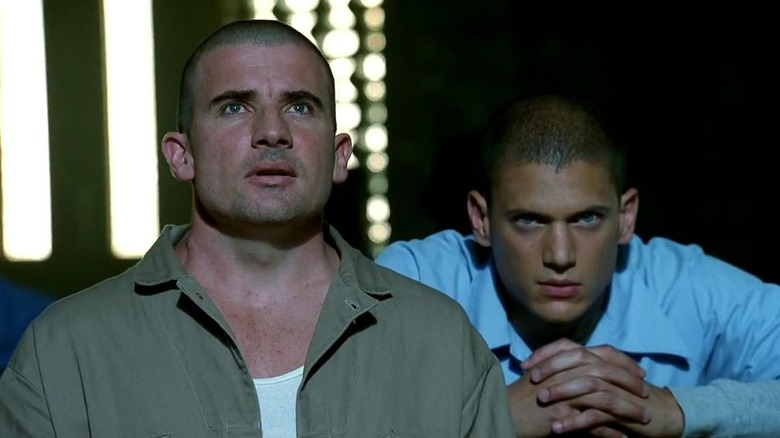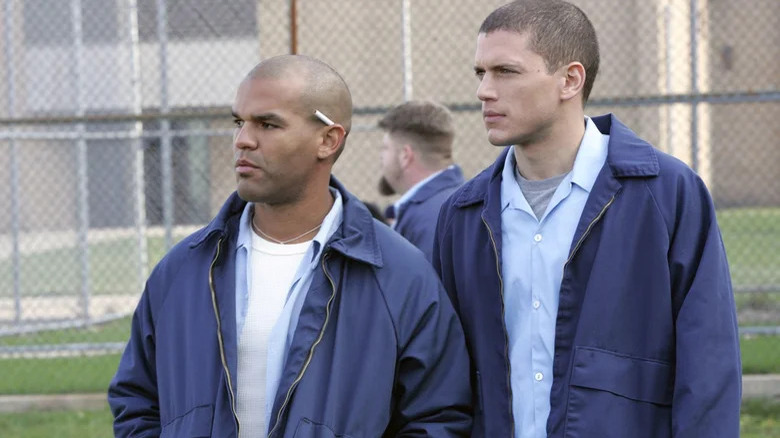What do you get when you mix a pre-golden-age-of-TV network show with the power of Netflix? If “Suits” and its unmitigated streaming success in 2023 and 2024 are anything to go by, you get nothing short of a full-on TV renaissance. The legal drama saw an unprecedented surge in popularity when it hit the streamer, which had long since established itself as a place where forgotten movies could find new life. But “Suits” proved that canceled network shows could also flourish on the streamer, and now it’s time for a new old series to take advantage of the Netflix effect.
That show is, of course, “Prison Break.” Belonging to a pre-“Breaking Bad” age, when TV hadn’t quite established itself as the serious rival to movies we now know it as, Fox’s crime drama was the kind of infinitely bingeable series that would have fared brilliantly had it debuted in the streaming age. Now, “Prison Break” is getting a chance to prove its streaming prowess, and has been thriving in the Netflix charts over the last couple of months.
The show revolves around two brothers, Lincoln Burrows (Dominic Purcell) and Michael Scofield (Wentworth Miller). With Lincoln in jail awaiting the death penalty after being falsely convicted, Michael concocts an outlandish plan to break him out, beginning with committing armed robbery just to be sent to the same penitentiary as his brother. The show managed to wring two great seasons out of such a premise, but sort of lost its way after that. Still, it remains one of the great series of the early-aughts simply for those first two seasons. With that in mind, we thought we’d take a look at exactly why “Prison Break” was canceled.
Why was Prison Break canceled… the first time?
Originally running for four seasons and a double-episode feature between 2005 and 2009, “Prison Break” was a big hit with audiences when it debuted. But anyone who saw the show when it first aired might recall how things went downhill with the third season. While several shows were totally changed due to the 2007-08 writers strike, “Prison Break” actually remained relatively unaffected, though the third season was slightly shorter than Fox originally intended. But the strike did affect the ill-fated companion series, “Prison Break: Cherry Hill,” which was set in a women’s prison and ultimately never saw the light of day.
Soon after the strike, however, at the 2009 TV Critics Press Tour, Fox executive Kevin Reilly announced that the fourth season of “Prison Break” would be its last. E Online reported from the event, quoting Reilly as saying “‘Prison Break’ had a hell of a run, but the run has ended,” with the outlet noting that the show had seen a significant drop in ratings as it progressed. At the time, Reilly wanted to distract from that kind of negativity, chalking the show’s demise up to “creative” reasons. The exec said, “The show has just played out. You get to a point creatively where you feel all the stories have been told, and you want to end strong and not gimp out in the end of the season.”
While the “creative” angle certainly sounds a lot better than, “A lot of people stopped watching our show so we’re canning it,” the fact is that while the first season of “Prison Break” attracted an average of 9.2 million viewers, the fourth was averaging 6.1 million. That said, how many times can you really come up with new and inventive ways to have the characters break out of prison without it getting stale? In that sense, the “creative” angle certainly holds some weight. At the same time Reilly announced the cancellation of “Prison Break,” he also confirmed there were six episodes left to air and that there were “are a couple more they’re contemplating” — which ultimately aired as the two-hour TV movie “Prison Break: The Final Break.” Even prior to those final installments airing, however, the show had clearly declined in quality as it tried to extend its brilliant but somewhat thin premise across multiple seasons.
Why was Prison Break canceled… the second time?
In August 2015, Fox announced a fifth season of “Prison Break” was being discussed, and in January of 2016, the network confirmed the season had been greenlit. The revival would see the return of Wentworth Miller and Dominic Purcell, and was originally set to span 10 episodes, before that was shortened to nine. Premiering in April 2017, eight years after “Prison Break” originally went off the air, the fifth season ran until May 30 with Fox prepping for a sixth installment in the series. However, new episodes failed to materialize and in 2019 it was announced that Fox had no plans for more “Prison Break.”
According to Deadline, the fifth season pulled in an average of 3.96 million viewers for the 2016-2017 rankings, which surely wasn’t the triumphant return Fox was hoping for. By comparison, the highest-rated shows that weren’t “Sunday Night Football” were “The Big Bang Theory” and “NCIS” with 18.99 million and 18.03 million respectively. Still, the revival was considered a modest hit, and it seems ratings weren’t to blame for the loss of a sixth season of “Prison Break.”
Then, in 2019, Disney completed its acquisition of Fox. During an executive session that same year, Fox Entertainment CEO Charlie Collier confirmed that a sixth season of “Prison Break” was not in development. “There’s no plan right now to revive ‘Prison Break’ or any of the other franchises,” he said. “But when the creators come with a story that they think is the right time to tell, we are so ready to listen because those are some franchises of which I’m so proud and feel so fortunate that they’re in our stable.” In reality, with Disney now in charge of Fox, it was always going to be incredibly unlikely that the new company would move forward with projects greenlit prior to the merger.
While there are currently no official plans to revive the show, “Prison Break” has found renewed popularity on Netflix — so much so that, as per Variety, it remained the number one most-watched show across all streaming services for multiple weeks in a row. So, we might well see Disney return to the IP in the same way that NBC ordered spinoff “Suits: LA” following the streaming success of “Suits.”









